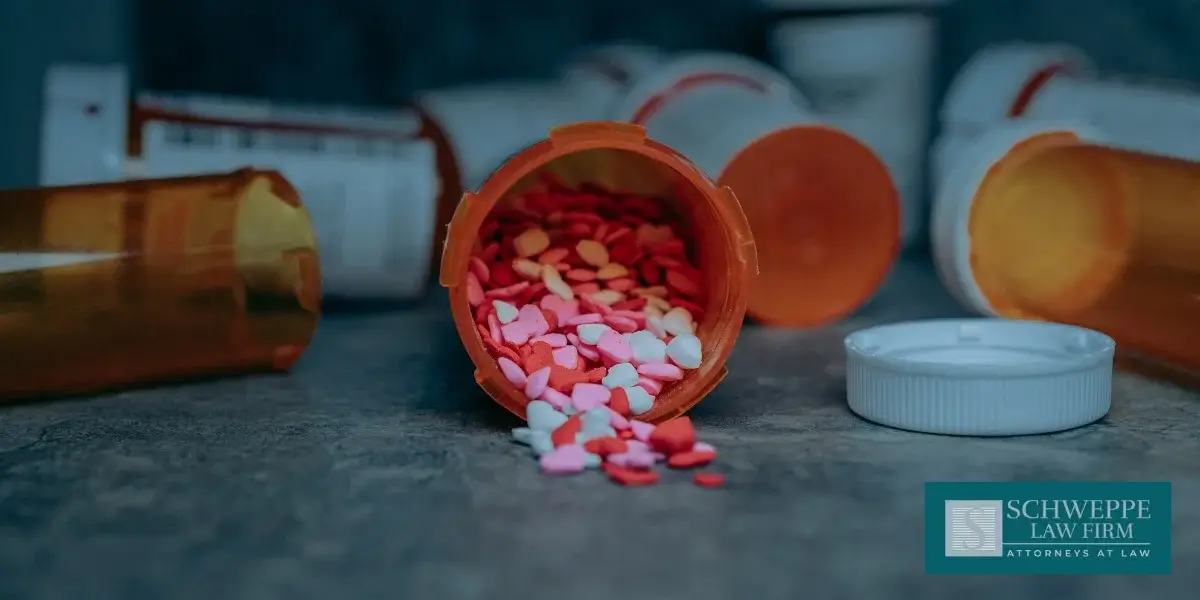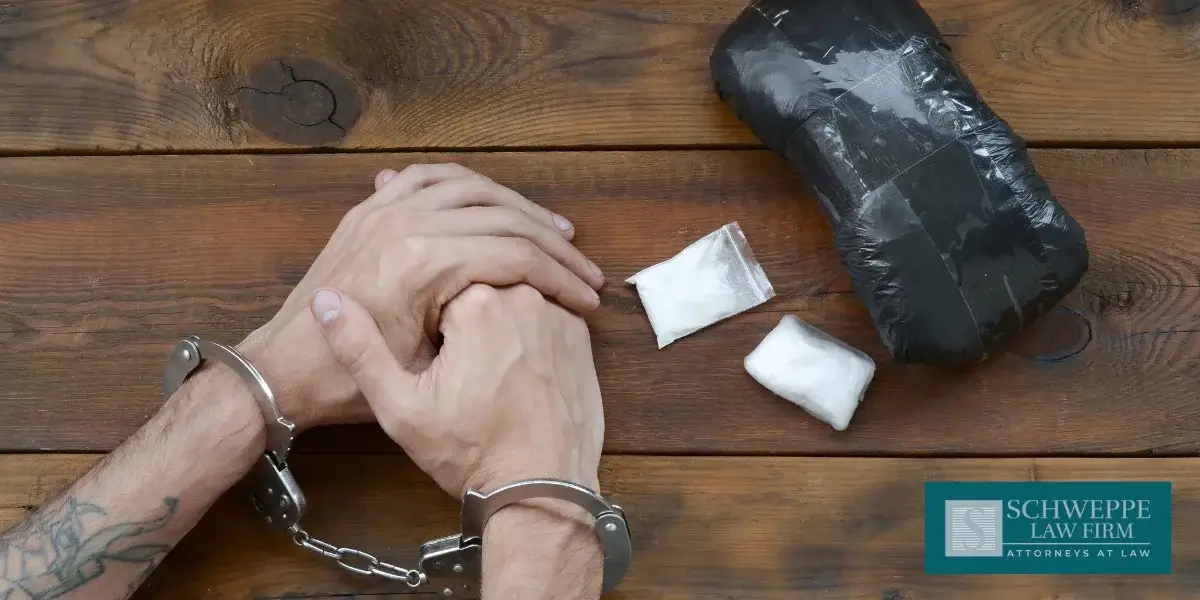Gastonia Drug Crime Lawyer
Gastonia Drug Crime Attorney
If you are facing a drug crime charge in Gaston County, it is vital that you partner with a trusted Gastonia drug crime lawyer from The Schweppe Law Firm, P.A., as soon as possible. A guilty verdict and a long sentence can be devastating, but our skilled legal team knows how to prevent difficult outcomes like these. We can work to build a legal defense strategy that protects your rights and optimizes your chances of a favorable result.

Common Types of Drug Crime Cases
Drug crimes will vary in severity depending on key factors like the type of drug, the quantity involved, intent, and any prior criminal history present. Below are different types of drug crime cases:
- Drug Possession: Having illegal drugs in your possession for personal use can result in a misdemeanor or felony, depending on the amount and type of drugs. In many areas, the possession of marijuana, cocaine, heroin, methamphetamine, and prescription drugs without a prescription can fall under drug possession laws.
- Drug Possession With Intent to Distribute: Similar to drug possession, if an individual possesses drugs with the intent to distribute, sell, or deliver them, they may be charged with a felony.
- Drug Trafficking: Trafficking includes manufacturing, transporting, and distributing large quantities of illegal drugs. This is generally considered a high-level felony with severe penalties. Drugs that are often involved in trafficking include cocaine, heroin, fentanyl, and methamphetamine.
- Prescription Drug Fraud: Getting and distributing prescription medications illegally, whether through online purchases, forging prescriptions, or doctor shopping, can result in either a misdemeanor or a felony. Common drugs found in prescription drug fraud include OxyContin, Xanax, Adderall, or Vicodin.
- Driving Under the Influence of Drugs: Operating a vehicle under the influence of drugs can result in a misdemeanor or a felony, depending on the severity of the injuries caused or whether it is a repeat offense.
How a Drug Crime Lawyer Can Help
Facing drug charges in Gastonia is a serious and overwhelming experience for anyone, but having the support of a trusted drug crime lawyer at your side can greatly impact the potential outcome of your case. Not only are they able to help with the technicalities of the legal process, but they can also work to build a strong defense that supports your position. Below are specific key ways a lawyer can help:
- Understanding of Drug Laws: Lawyers have a detailed understanding of the drug laws that impact your case at both the state and federal levels. This knowledge can set you up for success.
- Developing a Strong Defense Strategy: Each case is unique, so it is vital to partner with an experienced lawyer who can tailor a defense strategy to your specific situation. They can employ defense techniques like entrapment and unlawful search and seizure.
- Negotiating Plea Bargains: If going to trial is not ideal in your case, a lawyer can help you negotiate a plea deal with the prosecution, which may lead to reduced charges, lighter sentences, or alternative sentencing programs.
- Challenging Evidence: Lawyers can, in detail, analyze the evidence presented against you by the prosecution and potentially challenge its accuracy and credibility.
- Court Representation: If your case moves to trial, your lawyer acts as your legal advocate in the courtroom. They can present evidence on your behalf, cross-examine witnesses, and employ a defense strategy that elevates your chance of a favorable result.
- Administrative Help: Throughout the case, a lawyer and their legal team can offer significant support with the administrative tasks and aspects of your case. For instance, they can ensure paperwork is properly filled out and filed on time, as well as handle communication with connected personnel, freeing you up to focus on more important things.

FAQs About Gastonia, NC Drug Crime Law
How Much Does a Criminal Lawyer Cost in North Carolina?
How much a criminal lawyer may cost in North Carolina varies depending on several factors, such as how complex the case is, the lawyer’s experience level and reputation, the time needed to complete the case, the specific jurisdiction, and the lawyer’s and law firm’s fee structure. Fee structures can also impact the overall cost, with common structures being a one-time flat fee, an hourly rate, and a retainer fee.
How Do You Win a Drug Possession Case?
The most effective method to win a drug possession case can depend on the specifics of each situation, but it’s often based on the strength of the evidence. Strategies that can be used to win a drug possession case include challenging the validity of the evidence against you, proving that you did not know the nature or presence of the substance, and challenging the legality of the search and seizure.
Do First-Time Drug Offenders Go to Jail in North Carolina?
In North Carolina, a first-time drug offender can go to jail, especially if they are charged with felony possession. Meanwhile, a first-time offender with a misdemeanor possession charge is less likely to go to jail and may instead face fines, probation, or mandatory drug education programs. Felony possession charges often occur when there are large quantities of a controlled substance like heroin, methamphetamine, or cocaine.
Do You Need a Drug Crime Lawyer to Win a Case?
A: While it is not a legal necessity that you work with a drug crime lawyer, their support can mean the difference between achieving a favorable outcome and facing a guilty verdict with a severe sentence. A drug crime lawyer can increase the likelihood of a successful result, as they understand the laws surrounding your case, can walk you through the legal process, and represent you in key discussions, mediation, and litigation.
Get in Touch With a Trusted Gastonia Drug Crime Lawyer From The Schweppe Law Firm, P.A.
After an arrest for an alleged drug crime, you must take swift action to protect yourself and your freedom. Reach out to The Schweppe Law Firm, P.A., to set up an initial consultation and learn how our legal team can support you throughout the legal process.





